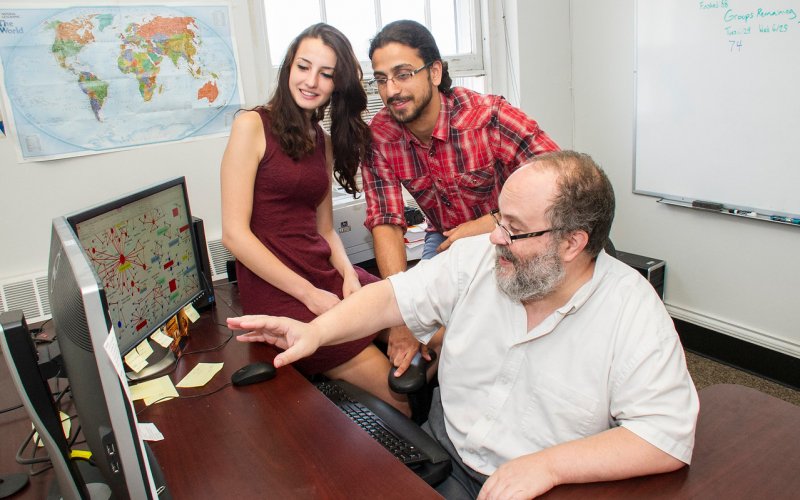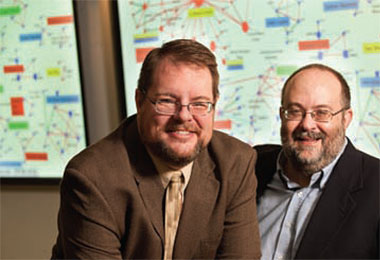BAAD’s Terrorist Tracking Efforts Garner New Funding

$280,000 Award from Department of Defense critical to extending efforts to violent non-state actors
ALBANY, N.Y. (Feb. 14, 2019) – Terrorist organizations are constantly changing, and tracking their network affiliations is a complicated task. At the University at Albany, Political Science Professor Victor Asal and Rockefeller College of Public Affairs and Policy Dean R. Karl Rethemeyer have worked for more than a decade to compile and analyze how these “bad actors” operate and interact.
Their efforts resulted in the creation of The Big Allied And Dangerous (BAAD) 2 dataset, which tracks terrorist and insurgent organizations over time, examining how group behaviors (such as killing of civilians and pursuit of weapons of mass destruction) are impacted by factors such as collaboration, competition, size, ideology and counter terrorism strategies.
Now the U.S. Department of Defense, through its Combating Terrorism Technical Support Office (CTTSO), is extending support for the project through a $3 million award to START, the National Consortium for the Study of Terrorism and Responses to Terrorism. Led by the University of Maryland, START encompasses numerous research projects, education and training efforts related to the study of terrorist activities.
UAlbany’s BAAD2 database is a significant part of this collaboration. The new funding includes $280,000 for the database.
“The Department of Defense award is critical for continuing and expanding the BAAD2 database, which is unique in its coverage, depth and focus on networks between and among terrorist and insurgent organizations,” said Rethemeyer. “This award also will allow us to continue training new experts on violent non-state actors at UAlbany.”
Rockefeller College has seen more than 40 alumni of the BAAD project employed around the country in critical homeland security positions, from the head of emergency planning for the Unified School District of Austin, Texas, to intelligence officers in federal service.
“This new support will build the BAAD2 database while building the skill sets of our students,” continued Rethemeyer.
“START datasets are among the most robust sources of terrorism-related data in the world. Through the partnership with CTTSO, START will be able to provide more timely data to decision makers and policy experts, while also facilitating the research of other scholars through increased collaboration,” said Dr. Amy Pate, START research director and acting executive director.
“In addition to helping policy makers, the BAAD2 dataset has enabled important research on why terrorist and insurgent organizations behave the way they do – and what governments can do to make things better or worse,” said Asal.
With data on violent non-state actors who have perpetrated at least one event between 1998 and 2016, the BAAD2 dataset will be updated through 2017. Asal and Rethemeyer will also take steps to accelerate their data collection efforts to a yearly basis and build the ability to fast-track collection of information on specific organizations of interest.
 |
|
Rockefeller College of Public Affairs and Policy researchers R. Karl Rethemeyer, left, and Victor Asal.
|


